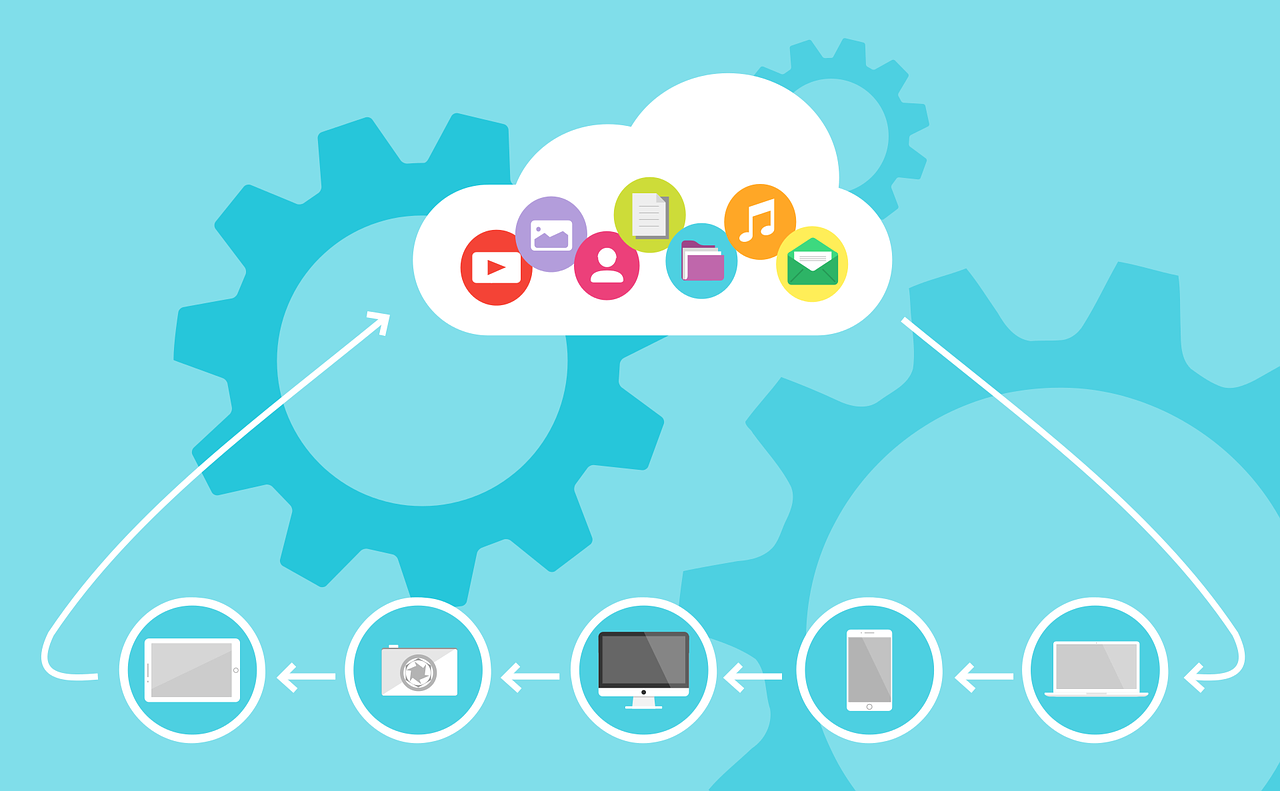
Part 1
They all have different sizes and goals, but businesses across the globe are turning to cloud technology at an alarming rate. And, this goes beyond the idea of simply using cloud storage over on-site servers. More and more we see businesses turn to cloud systems over traditional, desktop-based software.
But, why are businesses making the change? What are the benefits prompting businesses to adopt this modern way of working? Well, the following advantages certainly help make the decision easier:
How Cloud Systems Enhance Business Processes
1. Cross-Device Integration
A few decades ago, before mobile communication, business used to be left at the office. Now, it moves with us. But, because business has gone mobile, it makes sense that important data can be shared across devices whilst on the go. After all, having multiple devices is senseless if your important data is split between them.
This is why cloud technology is so vital to modern business. The cloud allows important data to be accessed on any device – keeping it always at hand.
2. Collaboration
Another important tool of modern business is synergy. A team working together will likely produce more effective results than people working autonomously, and do so in a shorter period of time.
Cloud systems allow for this collaboration, even if the members of a particular team are separated. Thanks to online storage, it is possible to share content, calendars, and the like with team members in order to better pool resources. And, with certain systems facilitating video conferencing and social-media-inspired chat, connecting with a team is made especially simple.
3. All-Hour Access
On-site servers mean that any data backed-up at the office can only be accessed from there. This means that data availability is limited, in these cases, to traditional office hours.
However, with a few exceptions, cloud providers generally offer 99.9% uptime. This means that it is possible to access important data remotely, and at all hours. In the modern era of global business, this is essential.
4. Budget Management
Traditional software solutions often required a large upfront payment for software. And then, even worse, this required an in-house IT department to manage the servers and maintain the smooth running of the software.
Cloud systems, on the other hand, negate the need for costly software and IT departments. Good systems require no costly upfront fees and they update automatically, meaning that there is no need for an in-house IT department.
The downscaling of a whole department means savings in salaries as well as physical space. Without the need for the IT department’s physical presence, it is possible for a company to decrease the size of its premise, resulting in far better-looking budget. If you need more information about the cloud systems, contact IT support in New York. They will be able answer any of your questions.
Cloud to Become Bigger Than Ever
These are just some of the many benefits of cloud systems as opposed to traditional computing. But, based only on these, it is no wonder that cloud systems are likely to become more popular than ever over the foreseeable future.
As businesses of all shapes and sizes begin to relinquish old anxieties about cloud systems and trust in the benefits, look for cloud systems to become a staple in business IT.
Part 2
Though cloud technology has been around for quite some time now, it has been approached tentatively by businesses due to security concerns. But, with cloud security having taken leaps forward in recent years, businesses are starting to flock to this technology based on their leaders’ appreciation of cloud’s benefits.
In Part 1 of this look at cloud systems versus traditional, desktop-based software, we pinpointed a few fundamental benefits of cloud technology. Now, let’s look a little deeper and discuss the broader business benefits of cloud systems:
How Cloud Systems Help Businesses
1. No Physical Installation
Traditional systems required the installation of servers, which would disrupt work processes and cost a healthy dose of cash. Depending on its complexity, this installation period could result in costly downtime.
However, cloud systems don’t require this level of installation. With no on-site servers, installing cloud systems is as simple as installing the software which the system utilises. After this initial installation period, it is simply a case of importing email, setting up mobile, and uploading the required data.
2. Flexibility
The costs related to traditional computing was always in line with its maximum requirements. Storage capacity always had to accommodate the system at its most demanding, but the costs would stay in line with this even after demand dipped.
Cloud technology, however, allows businesses to save money through flexibility. Businesses can boost capacity when needed and then scale it back when the system is in less demand. This way, the costs dip when the capacity does, amounting to valuable savings.
3. Defence against Disasters
Though we all hate to think about them, natural disasters are a reality. A freak lightning storm or flash flood can do some serious damage to a building, its on-site servers, and its precious data. This is why storing data off-site via cloud systems is good insurance against such events.
4. Facilitation of Movement
Speaking of off-site backups, cloud systems are especially useful when moving offices or merging companies. There is no need for moving or neutralising whole IT departments and moving software to computers piece by piece. Cloud systems allow for fast and simple integration of new devices and data can be accessed straight away.
5. Remote Staff
In the modern age of interconnectivity it is fairly common to see companies downsizing their physical premises and having certain employees work remotely. Cloud systems streamline this process by making teamwork that much easier. Even if a team is spread out across the globe, it is quite possible for its members to communicate and share files as if they were sitting in the same room.
The Benefits of Cloud Services
Cloud systems create a collaborative cohesion that is absolutely necessary in the modern age of business. Because of this, it should be embraced.
Companies that recognise the benefits of cloud technology but aren’t quite sure how to approach it would do well to enlist the help of professional cloud services. For that matter, so would companies already utilising the cloud.
Cloud services allow increased productivity among staff, which translates as increased profits. And, with the ability to scale back dedicated IT departments, cloud systems are poised to define the current age of business.

















